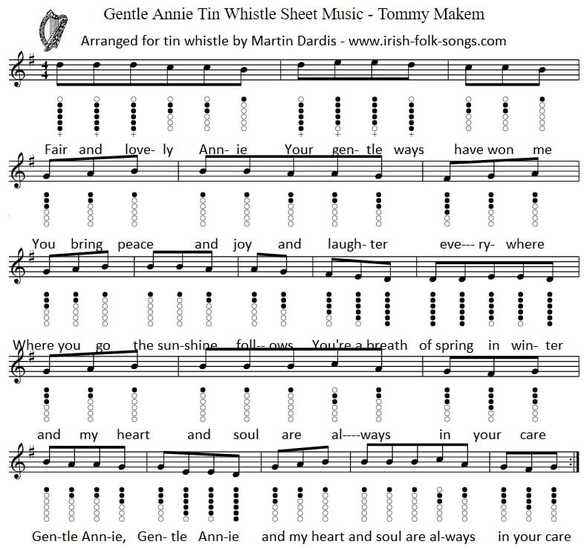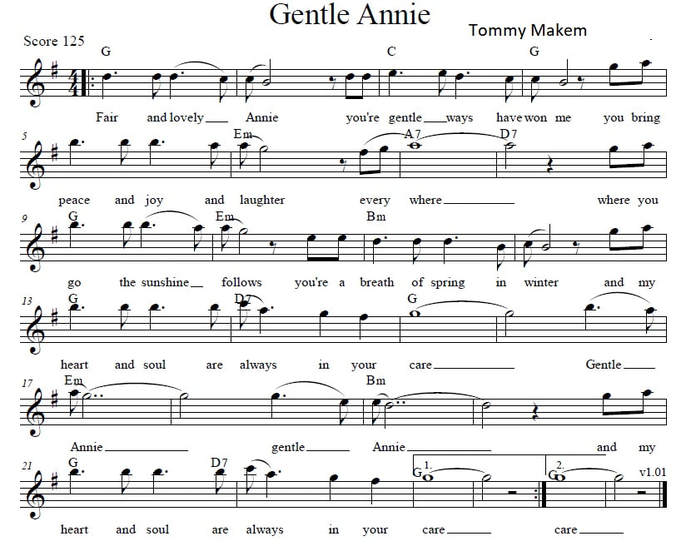Gentle Annie lyrics and Guitar chords by Tommy Makem
The tin whistle sheet music is included. I have included 2 sets of guitar chords. The first is the basic version and the second is set to the key that Tommy Makem sings it in the live youtube version. The song was also recorded by Foster And Allen and by Danny Quinn.
|
[G]Fair and lovely Annie,
Your[C] gentle ways have[G] won me. You bring peace and joy and[Em] laughter every[D]where. Where you[G] go the sunshine follows, You're a[D] breath of spring in [G]winter And my heart and soul are[D] always in your[G] care. [G]Gentle Annie,[Em] Gentle[G] Annie, And my heart and soul Are[D] always in your[G] care. When you touch me with your fingers, My cares and worries vanish Like the morning dew before the rising sun, When your eyes tell me you love me, Then my soul is filled with wonder And my love for you will live when life is done. Gentle Annie, Gentle Annie, And my love for you Will live when life is done. You're the flower among the flowers, You're the birdsong in the morning, You're the laughter of the children at their play. You're my hope and joy and wisdom, You're my reason just for living, You're my treasure, You're my very night and day. Gentle Annie, Gentle Annie, You're my treasure, You're my very night and day. When the mountains all come tumbling And the earth has stopped its turning, When the winds don't blow and stars refuse to shine, When the moon has left the heavens, And the seven seas are empty, I will still have Gentle Annie on my mind. Gentle Annie, Gentle Annie, I will still have Gentle Annie on my mind. |
Here are the guitar chords as sang by Tommy Makem.
[F]Fair and lovely Annie, Your[C] gentle ways have[F] won me. You bring peace and joy and laughter every[C]where. Where you[F] go the [C]sunshine [Dm]follows, You're a[Am] breath of spring in [F]winter And my heart and soul are[C] always in your[F] care. [C]Gentle [F]Annie,[Dm] Gentle[Ab] Anni[Am]e, And my [F]heart and soul Are[C] always in your[F] care. Gentle Annie Sheet Music Notes |
Below is another version of the sheet music



